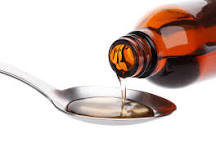According to Uzbekistan’s health ministry, 18 children died after drinking cough syrup made by Indian drugmaker Marion Biotech.
According to the ministry, preliminary tests revealed that a batch of the medicine contained ethylene glycol, a toxic substance.
According to the report, the children were given the Dok-1 Max syrup without a doctor’s prescription.
They also consumed more than the recommended daily allowance for children.
The Uzbek allegation comes just weeks after The Gambia linked child deaths to cough syrups made by another Indian company.
Since December 27, India’s health ministry has been “in regular contact with the national drug regulator of Uzbekistan regarding the matter,” according to a statement.
It was also stated that health officials inspected Marion Biotech’s facility in Noida, Uttar Pradesh.
“Samples of cough syrup were taken from the manufacturing premises and sent to the Regional Drugs Testing Laboratory in Chandigarh for testing,” according to the statement.
News organisation According to ANI, a Marion Biotech executive stated that the company has temporarily halted syrup production. He also stated that the government was conducting an investigation and that the firm would take appropriate action.
Marion Biotech is headquartered in Noida, India, not far from the country’s capital, Delhi. Its website is currently down, but the company’s LinkedIn page says it was founded in 1999 and that its products are “household names in Central Asian countries, Central and Latin America, South East Asia and Africa”.
India produces one-third of the world’s medicines, the majority of which are generic drugs.
The country, home to some of the fastest-growing pharmaceutical companies, is known as the “world’s pharmacy” and meets much of the medical needs of developing countries.
How could this be possible?
As with the tragic reports from Uzbekistan, deaths of children in The Gambia have been linked to Indian-made cough mixtures laced with high amounts of ethylene glycol or diethylene glycol – both toxic substances, with the former found in anti-freeze, among other things.
All manufacturers in India are required by law to adhere to strict quality control and production practises.
According to the experts we spoke with, regulations suggest that drugs intended for export must meet the same standards as those intended for domestic consumption, but it is unclear how those standards are enforced.
Dinesh Thakur, a public-health activist, highlights the lack of proper accountability for producing substandard medicine. Currently, a $242 (£220) fine and up to two years in prison are possible penalties.







